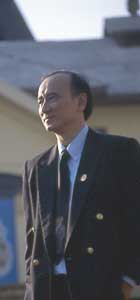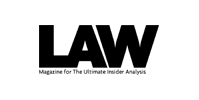| |
”Power is a necessary evil”. The famous quote is attributed to a foreign law and political science philosopher, commenting on effective government. In reaching this conclusion, liberal thinkers sought a form of power vested in public authority which would fulfil its functions while at the same time preserving human liberty. Political theorists have for years attempted to devise new theories that are “least evil”, and set appropriate limits on power. Two distinct systems which have emerged over the years as the predominant bicameral models are the British classical parliamentary system, and the United States system.
But today, government power and influence is rivaled by another kind of power. The mass media have evolved as a formidable political force for both good and evil, which can shape public taste and political thinking, expose corruption and even bring down governments.
The newspapers, then, need to have freedom and independence in presenting facts. They must also serve as a forum for people to express and share their knowledge and opinions with others. If laws are used to gag the media, freedom in receiving information will end, and Thai people will get less and less wise.
If we understand the power of the media, and particularly the visual media, we also begin to appreciate the enormous influence wielded by the media over the people.
With such influence over our society, we must face fundamental questions concerning media responsibility, accountability, and ethics. What is the role of a responsible media? Should the media’s power be controlled, and if so, to what extent, how and by whom?
But newspapers also act as a filter to control information given to the readers. This information will vary greatly, depending on the editorial policy and political leanings, and often will be “dumbed-down” and tailored to appeal to the widest public audience.
News that cannot “sell” is forced to be modified, to sound exciting and colorful. People, then, may become furious and fight with one another over issues created or stirred up by the media. The result is that the story takes on a life of its own, and the papers get to write about it more and more!
So we see that in the real world, then, the media can never be truly free, nor independent. Journalists are still chained to a career, and media people have to make a living, too!
Techniques of modifying news through clever use of language can easily lead to misinterpretation. After all, if everything is correct, no one will pay attention to it. On the other hand, if the news is incorrect, people who feel wrongly judged will clamour incessantly for attention, and demand redress. This way a news story can be spun out and can survive for many days.
Remember- in the newsroom ‘bad news always makes a good sale’.
Every day, we see examples of misleading news: Recently, there have been reports concerning drugs in schools. The reported “fact” is…
“A group of approximatlye 10 teenagers were seen passing by the Faculty of
Political Science. Some of them were intoxicated like addicts.”
The news seller says…
“Amphetamines have become widespread in a university. Students of the Faculty of Political Science are severely amphetamine addicted.”
The original report does not say if those teenagers are the university’s students – just that they happened to be passing by the university’s property! Even if they really were, can we really be sure that they were political science students? Furthermore, the reported appearance of intoxication might have been caused by alcohol, rater than amphetamines. Instead, the paper “diagnoses” that the teenagers are severely addicted to amphetamine. The use of ‘students are severely amphetamine addicted’ expresses an exaggeratedly horrifying picture. This kind of behaviour is definitely that of a news seller rather than a news reporter.
The fact goes…
“Evidence of drugs using was found in the bathroom.”
The news seller has it that…
“It has been exposed that bathroom was used to sell drugs.”
• |
|
 |
|













